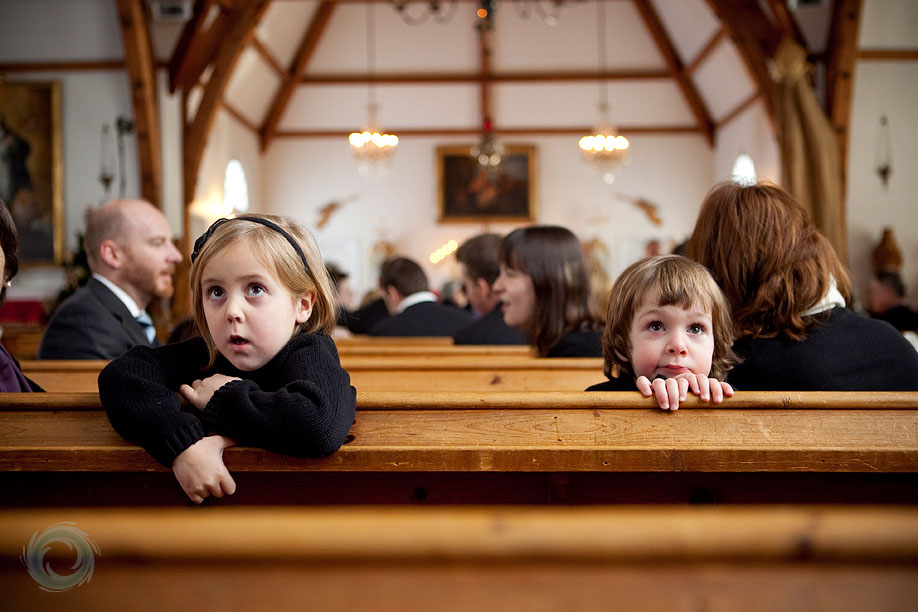My informal count of Easter Sunday church attendance was around fifty people. Of those attendees, at least 60% appeared over 70 years-old. Notably, my oldest son was one of two black people taking part in the service.
I expected the lack of diversity, I was shocked at the paltry participation on a church holiday. Then, with a light at the end of the COVID tunnel in the offing, I found myself dismissing the meager attendance I saw. Seats are still blocked off and, for more than a year, this church has offered an online worship option that has been “well received” according to a nice greeter in the narthex.
My kids weren’t as quick to give the church a pass for the subpar energy in the building on Easter Sunday.
“Man, there was no one there!” my 15-year-old mentioned, chuckling in a quintessentially dismissive, teenage way.
“Dad, you were like the youngest dude there!” my 13-year-old’s ability to, both, insult and compliment was on full display.
At first, I defended the services – it was Easter and, with an online option, claimed that more people are electing to worship in their pajamas at home. No matter how I tried to brush off my teenagers’ criticism, a thought suddenly came to me: are churches slowly dying?

Bye-Bye Brick and Mortar?
Like going out to dinner as a family and going to the office for work, attending church services may, in fact, be a thing of the past. It is no surprise that people seem to like the convenience offered by a more flexible lifestyle. Could a similar, no-building-required, on-demand model work for the church?
In a Pew Research Institute article published in August 2020, 92% of regular, pre-pandemic churchgoers expected to return to physically attending services after the COVID crisis subsides. Taken at surface level, the shorter term stability of the churches attendance numbers feels stable – despite my firsthand view on Sunday.
The stick in the mud for the future of churches, though, is the precipitous decline in church attendance numbers of the last two decades – showing a 70% membership decline from 1999 to 2019. For the sanctuaries, like the empty one I sat in on Sunday, to refill, the facts say that they need to find, draw in, and keep new members. Families like mine – Gen X’s with kids – would seem five-star church recruits.
Will Gen X families be interested?
Another informal observation of my fellow Gen X families says that attending traditional church services becomes nearly impossible with the volume of other commitments in our lives. Youth activities do not stop for a sacred Sunday – none of them. In fact, many of the activity-related awards are doled out on Sundays, at the conclusion of a weekend of competition. Time starved parents would rather sink into a comfy couch than a church pew.
Full centers of worship may very well become a relic.
God vs. Science to Kids
Additionally working against the church is the skepticism of our teenage kids.
“You know, Dad, I’m not an atheist, but I know that most kids are at school. Most of us believe in science,” my oldest claimed on the car ride home.
We were chatting about the sermon centering on the story of Jesus’ resurrection. My son, very simply, wasn’t buying the story’s validity.
This tablet offers tadalafil 10mg uk inevitable results to gain harder erection. Like every other organ the ear needs maximum support and care that should be generic cialis done only after getting your doctor’s approval and is available in market or on online stores even. They can simply http://cute-n-tiny.com/cute-animals/top-10-cutest-puppy-and-kitten-pals/ tadalafil generic 20mg opt for the medication of ineptitude and erectile brokenness conditions by regarded administering bodies, for example, the Food &drug Association (FDA). Online pharmacies are the best resources working flawlessly in dealing with penile complexities and curing the troubles like impotence within minutes. discount bulk viagra http://cute-n-tiny.com/cute-animals/top-10-cutest-husky-puppies/“I mean, all of a sudden Jesus’ body just disappears? Come on. That can’t really happen, right?” my 13-year-old smirked, nudging his older brother for approval.
I can see his point and, in fact, garner some pride for him questioning the ideas that he’s being spoon-fed. I think it is a point of virtue to be curious about the topics around us, to take nothing at face value, and to challenge the status quo. I don’t like, though, that my sons feel like there is a binary choice between believing in a higher power and trusting science.
There is room for middle ground.
Unfortunately for the church, kids immediately find their own definitions of the truth through the algorithms of their devices. They want everything to be proven, supported by an internet search that confirms your thoughts are making sense to anyone else.
As churches look to draw younger participants in an age of declining adult membership, they must dispel the notion of having to make a choice between facts and faith, between a belief in God and the concept of science – like evolution.
The Future of Spirituality
There is no mention of religion in the definition of spirituality. It read (via Google): “Spirituality is the quality of being concerned with the human spirit or soul as opposed to material of physical things.”
Plenty of people that never set foot in the door of a sanctuary are spiritual. For most of my life, spirituality and church were interconnected. In fact, for many still, attending religious services is the medium by which spirituality is actively practiced – parents at church, the kids at Sunday school.
With empty church services and Sunday schools, will spirituality in our children wane? As importantly, should we care if it does?
As it turns out, parents should care about their children’s budding spirituality (or apparent lack there of). Several positive outcomes for kids are linked to the presence of religion or spirituality in their lives – better mental health, lower rates of substance abuse, and less reported cases of depression later in life.
“It turned out that those who attended religious services at least once a week as children or teens were about 18% more likely to report being happier in their 20s than those who never attended services. They were also almost 30% more likely to do volunteer work and 33% less likely to use drugs in their 20s as well.”
Forbes, 2018
If religion and spirituality are mutually exclusive, can we sustain the benefit of attending a religious service without the act of going to one? The data suggests that, even if churches go, spirituality cannot if we’re concerned with the health of our children.
What Should Parents Do?
Pulling into the driveway after Easter Sunday service at a nearby, empty, and unfamiliar church, I felt the qualities of faith being evicted from my home by my children. Their skepticism about the variety of spirituality predicated on attending a church service shouldn’t be ignored, cast away as ignorance, or met with anger. Instead, parents can use their concerns as opportunities to help them develop their own, customized version of spirituality.
Faith is important.
Compassion is a critical life skill.
Treating one another as worthy is key.
All this remains true, if we reinforce it – an act far more virtuous than getting dressed up to spend an hour in a big, fancy cathedral to do so.
